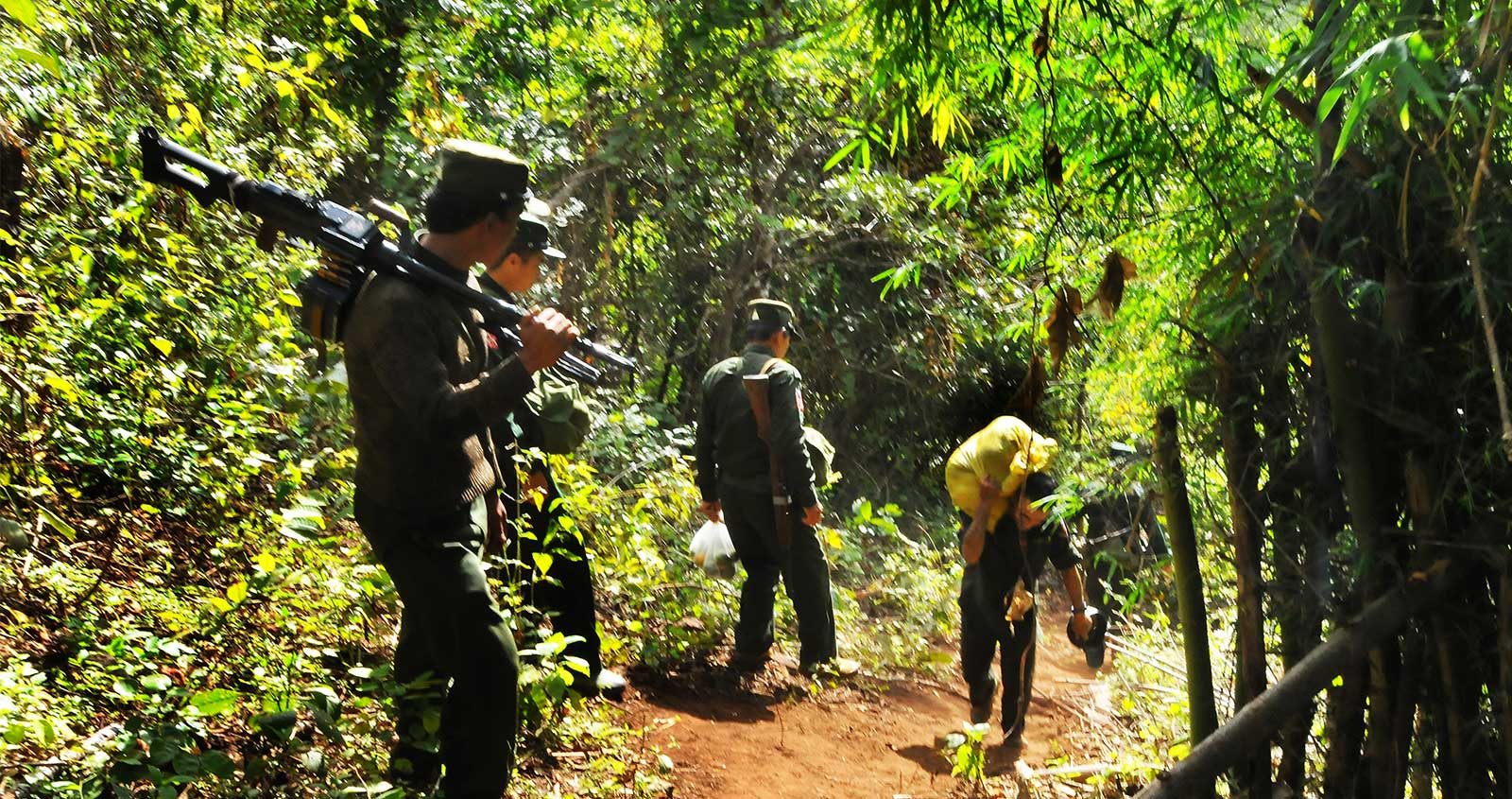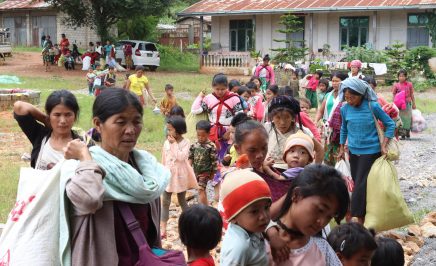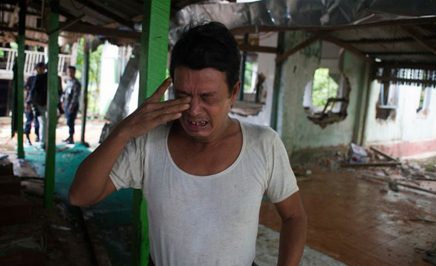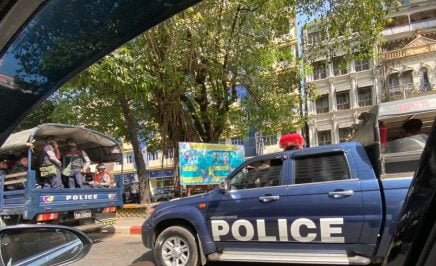The Myanmar authorities must immediately release three journalists, who were detained while carrying out their work in conflict-afflicted northern Shan State, Amnesty International said today.
Aye Nai and Pyae Phone Naing, both reporters for the Democratic Voice of Burma (DVB), and Thein Zaw (aka Lawi Weng), a reporter for the Irrawaddy newspaper, were arrested along with four other people they were travelling with. At present there is no information as to the identities of the four other detainees.
“These journalists must be immediately and unconditionally released, and allowed to resume their work freely and without fear. Their arrests send a chilling message to Myanmar’s already embattled media,” said James Gomez, Amnesty International’s Director for Southeast Asia and the Pacific.
Amnesty International has learned that the group was arrested by soldiers at a military checkpoint at Payargyi village, in northern Shan State’s Namhsantownship, at approximately 3:30pm local time yesterday. The journalists were in the area to report on a drug burning ceremony to mark yesterday’s International Day against Drug Abuse and Illicit Trafficking.
A statement posted on Facebook, by the Commander-in-Chief of the Myanmar Armed Forces, says the group was arrested for being in contact with the Ta’ang National Liberation Army (TNLA).
The TNLA is one of several ethnic armed groups currently locked in a conflict with the Tatmadaw, Myanmar’s military forces, in northern Myanmar.
The statement threatened to take action against the group “according to the law”. There are fears that the seven people arrested may be charged with the vague and repressive Unlawful Associations Act, often used to arbitrarily arrest and detain people in ethnic and conflict affected areas, both predominantly along Myanmar’s borders.
The space for journalists to do their critically important work is under threat as the authorities continue to invoke a slew of draconian laws to silence, arrest and imprison them and restrict access to areas where the military operates.
The space for journalists to do their critically important work is under threat as the authorities continue to invoke a slew of draconian laws to silence, arrest and imprison them and restrict access to areas where the military operates.
“These arrests are a crude attempt to intimidate journalists by a military that cannot seem to abide even the faintest criticism. Fearful of any scrutiny of its role in northern Myanmar, where they stand accused of war crimes, the army is doing its best to stop journalists and other observers from accessing these areas,” said James Gomez.
Background
In a report released earlier this month, Amnesty International documented how civilians from minority ethnic groups in Kachin and northern Shan States are suffering appalling abuses, including possible war crimes, at the hands of the Tatmadaw.
“All the Civilian Suffer”: Conflict, Displacement and Abuse in Northern Myanmar details how soldiers from Myanmar’s Armed Forces have carried out torture, enforced disappearances, extrajudicial executions, indiscriminate shelling of civilian villages, and put punitive restrictions on movement and humanitarian access.
Amnesty International also documented human rights abuses carried out by ethnic armed groups operating in the area, including the TNLA, such as abductions, forced recruitment and forced taxation of civilians.
The United Nations Human Rights Council established an international Fact Finding Mission to investigate abuses in Myanmar with a focus on Rakhine State.
“Australia, as one of the 11 donors of the Joint Peace Fund and one of the main donors to the Peace Support Fund, should call on the UN Fact Finding Mission to expand its investigation to human rights violations and abuses in Kachin and northern Shan State,” said Amnesty International Australia’s Crisis Campaigns Co-ordinator Diana Sayed.
“The Australian Government should also call on the Myanmar Government and military to immediately end all restrictions on humanitarian access, including to areas outside government control; to end all violations of international human rights and humanitarian law, and to ensure accountability for past and ongoing violations; to ensure that, for any military-to-military engagement, recipient units and commanders are vetted for past involvement in human rights violations; to prioritise training around international humanitarian law norms, including distinction and proportionality, and to consider providing increased support to humanitarian organisations operating in Kachin and northern Shan States, including to address emergency needs in both government and non-government controlled areas; and to expand mine safety education and programming.”









